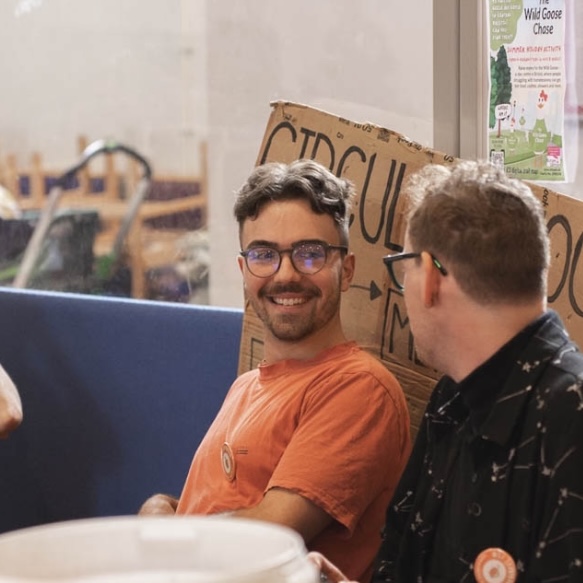Regenerating Bristol’s Urban Soil: Practical Steps for Healthier Ground
- Alex Montgomery
- Oct 12, 2025
- 3 min read
Updated: Oct 13, 2025
Why Bristol’s Soil Needs Regeneration
Walk through any Bristol neighbourhood from St Werburghs to Windmill Hill, and beneath the pavement and lawns lies a hidden story.
Years of construction, pollution, and compaction have stripped many city soils of their natural life. What was once living ground is often little more than sterile dirt.
Healthy soil isn’t just dirt; it’s a living ecosystem, packed with fungi, bacteria, worms, and organic matter. These organisms recycle nutrients, support food growth, store carbon, and even regulate local water cycles. When this living network collapses, so does the resilience of the environment above it.
The good news? Regeneration is entirely possible, and it starts with small, simple actions.

Step 1: Feed the Soil, Not Just the Plants
Most urban gardens suffer from a lack of organic matter. Without it, soil microbes starve. The first step in regeneration is to reintroduce life through compost and organic inputs.
Generation Soil produces living compost made from Bristol’s own food waste, teeming with beneficial microorganisms that restore the natural soil web.
By feeding microbes first, you help plants absorb nutrients naturally, reducing the need for synthetic fertilisers.
✅ Add compost regularly, even a small handful per square metre, makes a difference.
✅ Avoid “bagged dirt” with synthetic additives; instead, use microbe-rich compost.
✅ Topdress garden beds or pots to build long-term fertility.

Step 2: Start Composting at Home (Even Without a Garden)
City living doesn’t mean you can’t compost.
Bokashi fermentation, an ancient Japanese method, allows you to ferment food waste in airtight bins with no smell or pests, making it perfect for small spaces.
Once fermented, the waste can be added to community compost hubs or mixed into soil to create nutrient-dense compost.
In Bristol, you can join the Bristol Living Compost Project, where households contribute their food scraps to create compost that stays local.
Keep your waste hyperlocal
Cut emissions from transport
Turn scraps into soil for schools and community gardens

Step 3: Use Biochar to Supercharge Soil Health
Biochar is a carbon-rich material made from wood and organic waste heated without oxygen. It acts like a sponge for nutrients and moisture while providing habitats for soil microbes.
Adding biochar to compost or soil can:
Improve soil structure and aeration
Lock carbon into the ground for centuries
Boost microbial diversity and resilience
Generation Soil supplies pure biochar in Bristol, made from local wood waste, creating a truly circular system that feeds both the soil and the city.
Step Four: Grow Biodiversity (Even in Tiny Spaces)
Regenerating soil means creating balance, and biodiversity is the key.
Planting a mix of herbs, flowers, and perennials invites pollinators, which in turn feed soil life through decaying roots and leaf litter.
Try adding:
Deep-rooted plants like comfrey or yarrow. They mine nutrients from below.
Legumes like clover or beans. They fix nitrogen naturally.
Perennials. They keep roots in the ground year-round, stabilising soil and storing carbon.
Even a single raised bed or balcony planter can support a thriving mini-ecosystem when designed with soil life in mind.
Step Five: Regeneration Through Community
Soil regeneration isn’t just ecological, it’s social.
When people come together to compost, plant, and learn, they rebuild not just the ground beneath them, but the relationships above it.
In Bristol, Generation Soil partners with St Werburgh's City Farm, Square Food Foundation, and community gardens across the city to teach composting, soil health, and regenerative growing.
Each workshop is hands-on, connecting participants to the microbes, textures, and smells of living soil often for the first time.
These shared experiences create long-term behaviour change: people value their scraps, grow their own food, and reconnect with the cycles of life.

Step 6: Keep It Covered and Keep It Moist
Bare soil is vulnerable soil. Leaving it uncovered means losing moisture, microbes, and structure.
Use mulch, leaf litter, or ground covers to protect it year-round.
This simple action mimics natural forests and drastically improves soil over time, protecting against erosion and keeping the ground alive through every season.
A Regenerative Future for Bristol
Regeneration starts with what’s beneath your feet.
Every handful of compost, every worm, and every planted seed contributes to rebuilding the living systems that sustain us.
Through the Bristol Living Compost Project, workshops, and local collaborations, Generation Soil is proving that urban soils can thrive again, even in compacted city spaces.
Join the movement:
👉 Sign up for our newsletter to get your free Beginner’s Guide to Compost, Microbes & Regeneration.
👉 Join the Bristol Living Compost Project to keep your food scraps local.
👉 Buy living compost or biochar to feed your soil and the city.
Together, we can regenerate Bristol’s urban soil, one bucket, one garden, and one community at a time.




Comments